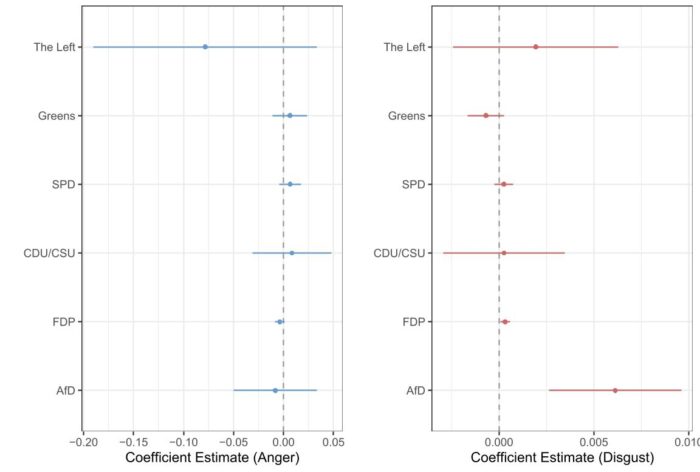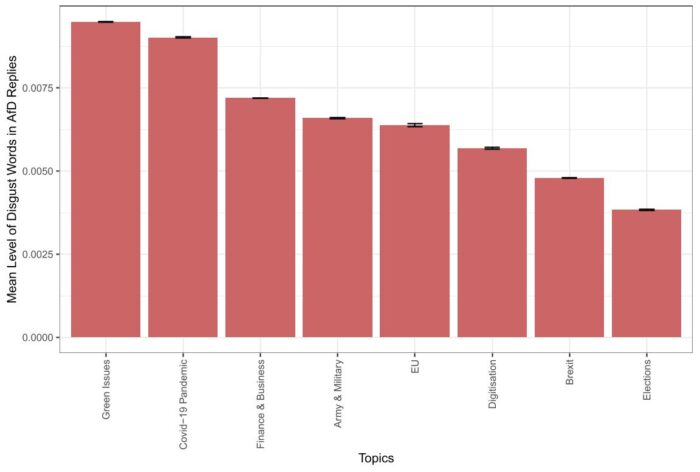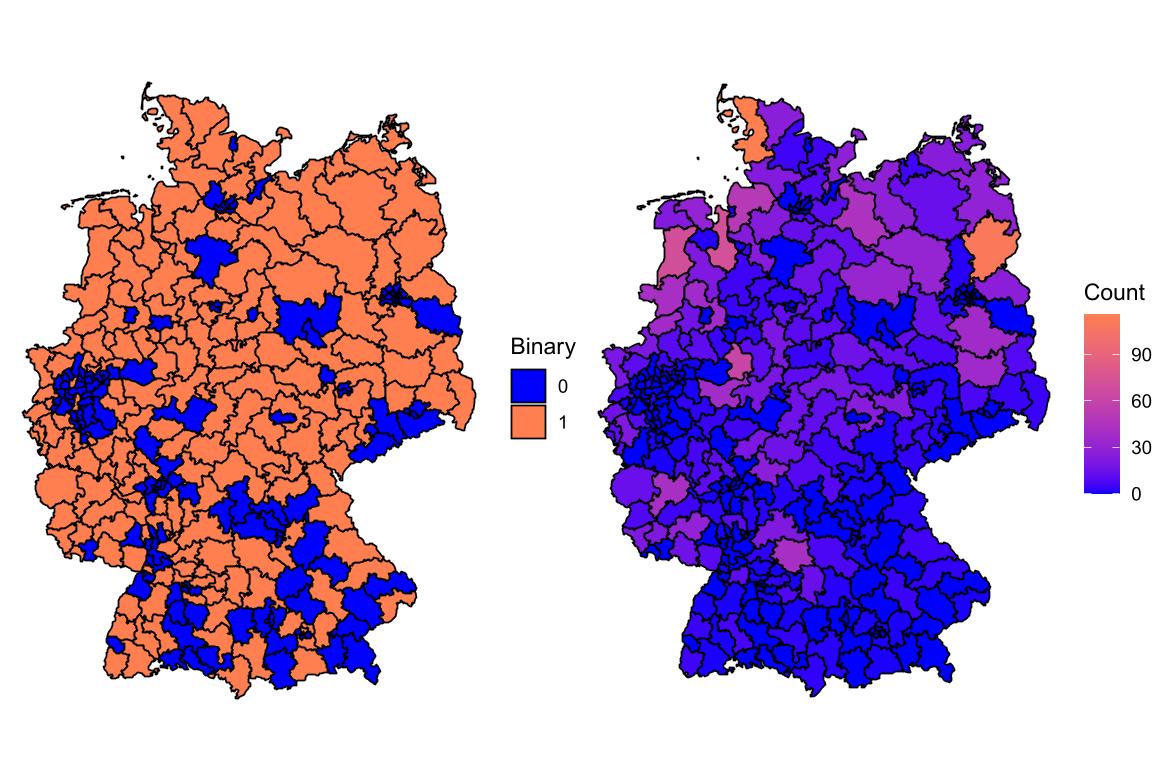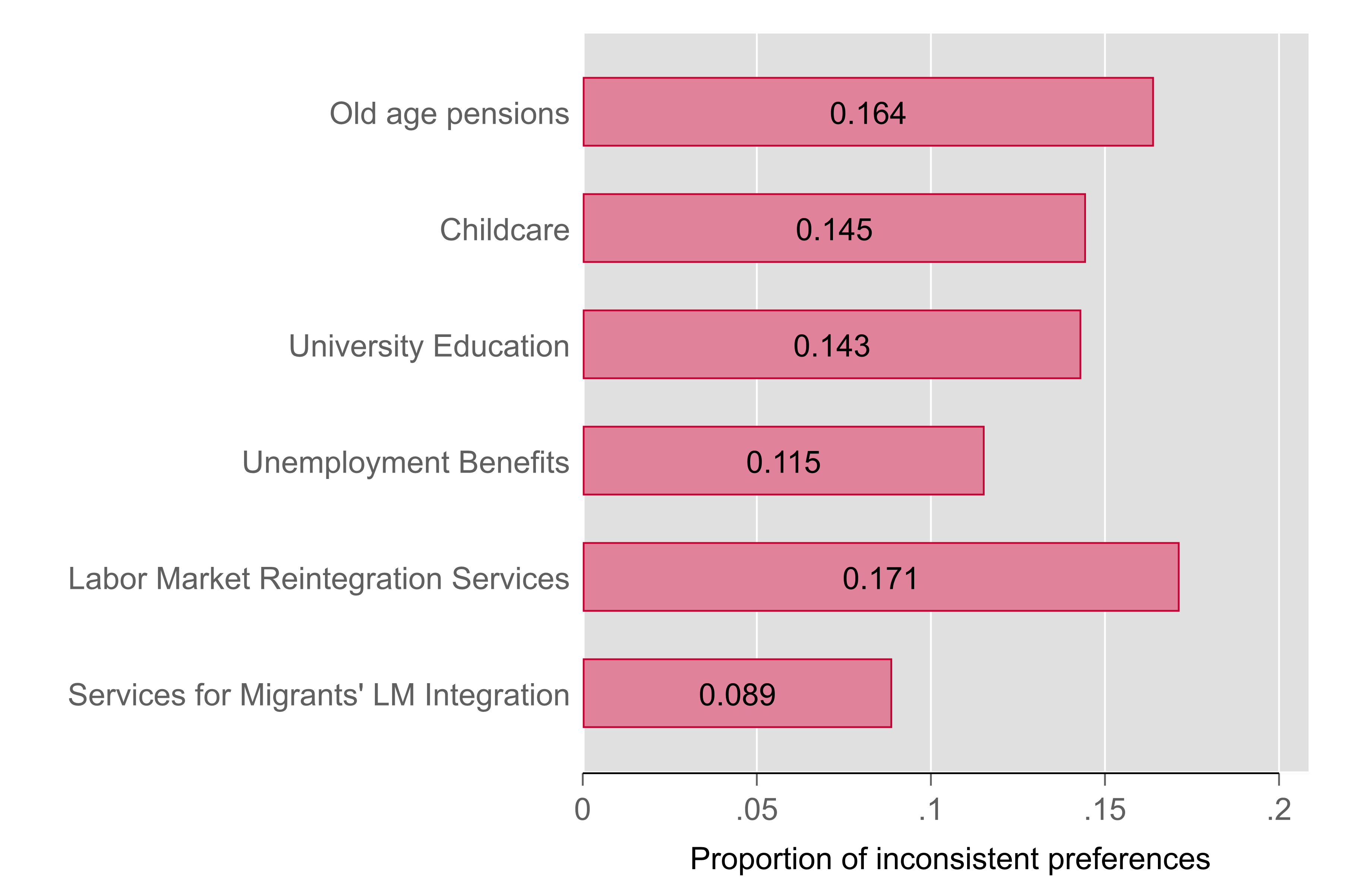Hot topics and Emotional Politics
Some issues, like migration, war, or climate change, ignite strong emotions. They are not just important topics; they are also politically divisive, offering politicians a chance to mobilize voters. But how exactly do politicians turn these emotional conflicts into electoral gains?
Research increasingly highlights the crucial role of emotions in politics. Politicians use emotional appeals to persuade people or mobilize them for political actions. However, they must be strategic about which emotions they tap into, as not every emotion has the same political impact. For example, anger and fear can have different effects: anger can increase political participation, while fear might suppress it. Different “discrete emotions” can shape partisan identities differently, influence voter turnout, or sway vote choices. Moreover, specific emotions affect people’s moral convictions in different ways.
People’s moral convictions play a crucial role in politics. Research shows that when citizens feel morally convicted about an issue, they are more committed to their viewpoints and more politically active. This suggests that moralizing issues can help politicians foster electoral support. Moreover, politicians can use moralized attitudes to bind their supporters more closely: moral conviction reduces the willingness to compromise, increases the desire to punish political opponents, and strengthens the wish for social distance from those who disagree.
When Feelings Become Morals
Emotions play a key role in moralizing issues. When people experience strong moral emotions like anger or disgust toward new information, their attitudes can become moralized. Experimental studies show that individuals moralize their attitudes on specific issues—like abortion or meat-eating—when they respond with strong moral emotions to morally disruptive material. Further experiments demonstrate that emotions are essential in moralization processes; without them, moral conviction and subsequent political consequences might not occur.
Therefore, emotions are crucial for citizens’ moral convictions, and we can expect politicians to use strong moral-emotional appeals to connect with their supporters on contested issues. This strategy is particularly effective when the specific emotions politicians appeal to resonate with their supporters. By speaking in moral and emotional language that makes sense and feels familiar, politicians can make electoral gains.
Politicians’ Emotional Playbook
To find out whether politicians appeal to specific emotions that benefit them, I examined the case of climate change in Germany. In recent years, environmental issues have become increasingly prominent in public discourse and political campaigns. There’s also significant political conflict over climate change: some people push for policies like renewable energy, while others don’t even believe climate change exists. As political conflict around this topic increases, politicians are likely to be strategic about their emotional appeals.
I used the construction of wind turbines in German electoral districts as a proxy for increased salience of climate change. Building new wind turbines should bring the political conflict over global warming to the forefront in those areas. I collected data on all newly built wind turbines in Germany, including their locations and construction dates. Then I analyzed the rhetoric politicians use in parliament and on social media. The idea is that if politicians are strategically using emotional appeals to maximize their electoral support around climate change, we should see changes in their speeches and tweets after wind turbines are built in their districts.
Do politicians appeal to discrete emotions?
The findings support some of these expectations. First, after wind turbines are built in their electoral districts, politicians from those areas talk more about climate change and renewable energy than before. This suggests that politicians notice the construction of wind turbines in their districts and change what they talk about accordingly.
But the construction of wind turbines also influences the emotional appeals used by some politicians. Wind turbine construction consistently leads the strongest opponents of climate change policies—members of the German radical-right party (AfD)—to increase appeals to the moral emotion of disgust, both in parliamentary speeches and on Twitter. The emotion of disgust is expected to resonate particularly well with their radical-right supporters’ moral and emotional concerns.
The findings for members of the Green Party are less consistent. Depending on the analysis, they show increased appeals to the moral emotion of anger, which is linked to their supporters’ moral concerns. Overall, the findings support the idea that politicians choose specific moral-emotional language that promises to have the most persuasive and mobilizing effect on their supporter base.

Do Politicians Use Emotions Strategically?
To test whether the AfD is actually appealing to the right emotion, I analyzed data from ordinary citizens and party supporters. The idea is that politicians appeal to emotions that resonate with their supporters to mobilize them. But to do so effectively, politicians need to know the moral-emotional preferences of their supporters.
I tested this in the case of radical-right supporters by collecting millions of Twitter replies to political messages from parties. The results show that AfD supporters’ discussions about green issues contain higher levels of disgust language than discussions by followers of other parties. This suggests that disgust plays a more important role among AfD supporters. Moreover, when comparing disgust levels in replies to different topics, green issues cause more disgust-related replies to AfD tweets than other commonly discussed political topics. So, green issues stand out in attracting disgust-related responses from AfD supporters.

Conclusion
Overall, this study shows that politicians appeal to specific emotions that they expect will benefit them the most when contested issues become more prominent. This highlights the importance of examining discrete emotions rather than just general sentiment and emphasizes the versatility of emotional framing. The findings also shed light on the emotional strategies of the radical right: while their support is often linked to anger, this study shows that radical-right politicians can adapt their moral and emotional framing and use different emotional appeals depending on what is most advantageous.
However, their reliance on negative emotions remains. Negative emotions can have significant implications for political trust and democratic values. More morally convicted attitudes and higher levels of moral-emotional appeals can exacerbate polarization and reduce the willingness to compromise. Negative moral emotions, in particular, can make the speaker seem less open-minded and less worthy of political conversation to those outside their group. Therefore, increasing levels of negative moral emotions can harm inter-group discourse. Considering the growing prominence of global warming and its future consequences, these findings potentially foreshadow increasing societal divisions between pro-environmentalists and climate change skeptics.
This blog piece is based on the forthcoming Journal of Politics article “Do Politicians Appeal to Discrete Emotions? The Effect of Wind Turbine Construction on Elite Discourse” by Tobias Widmann.
The empirical analysis has been successfully replicated by the JOP and the replication files are available in the JOP Dataverse
About the Author
Tobias Widmann is an Assistant Professor at the Department of Political Science at Aarhus University, Denmark. In his research, he touches on areas such as Political Communication, Political Behavior, and Social and Political Psychology. Methodologically, his main focus lies on Text-as-Data: he develops and trains many different tools for computational text analysis.


